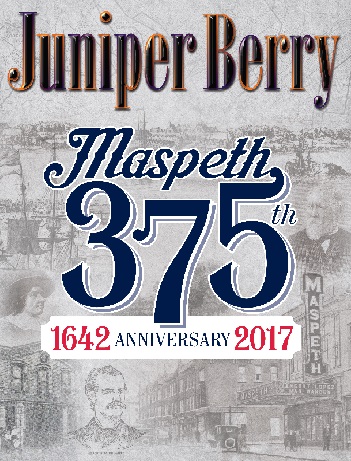In 1642, Rev. Francis Doughty and his followers left New England to settle a new colony where they could freely practice their unique type of Puritanism. Doughty approached the Director of New Netherland, Willem Kieft, to request a settlement patent. Kieft granted Doughty 6,666 acres of land on the western end of Long Island, and it was recorded as the “Mispat Patent”, named after the Native American term for the area. The grant stretched all the way to the Flushing River. The translation of the Dutch document, which is preserved in the State Historic Archives in Albany, is presented here:
PATENT TO FRANCIS DOUGHTY AND COMPANIONS
We, William Kieft, etc., have given and granted, as we herewith give and grant to Francis Doughty and companions their assigns and heirs in real, actual and perpetual possession a certain piece of land, with pastures and whatever else it includes, located upon Long Island of this province containing 6,666 acres Holland measure or thereabouts, geographically enclosed between four straight lines, each 2,000 Dutch perches long, of which the first begins at the east corner of Hans Hansen's meadow dividing by the course of the creek the marsh into two equal parts, and extends to the plantation of Richard Brudnall, and then northeast passing through the middle of the fresh marsh to the small creek bounding the southern part of Henry Agricola's (Henry the Farmer's) land, then following it to its mouth the second line beginning here bends towards the southeast following the seashore to another small creek, then along the course thereof from its mouth to where you come to the eastern extremity of the same marsh (where the said creek arises), then it bends southeast, until it has reached the distance of 2,000 Dutch perches; the third beginning at the end of the last tends more westwardly and is of equal length with the former; finally the fourth starting from the last point deflects to the northwest and closes the square at the abovenamed easterly point of Hans Hansen's meadow, at which corner a stone is to be erected later for the greater certainty of the limits; with power to build on the aforesaid land a village or villages, a church or churches to exercise the Reformed Christian religion which they profess an ecclesiastical discipline; also to legally administer high, middle, and low jurisdiction; to decide civil suits for sums not exceeding 50 Holland guilders while in criminal cases their sentence of fines up to the same sum shall be final and without appeal; in other civil as well as criminal suits of greater import to pronounce the final sentence by which appeal may be referred to the supreme court of New Netherland and execute such sentence and finally to exercise all rights conferred upon the further power of nominating and presenting to the director of New Netherland some of their community, that from their number suitable persons may be selected for the civil and judicial administration with the right of hunting, hawking, fishing and trading and the immunities granted or to be granted to the of this Province, none excepted.
Wherefore the said F Doughty and his companions, their assigns and heirs are bound as long as they shall remain in possession of the aforesaid land to acknowledge the said lords’ directors as their masters and patroons, to pay after the lapse of ten years the tenth part of the produce of the fields whether cultivated with the plough, the hoe or otherwise (orchards and gardens not exceeding one acre Holland measure excepted). Finally to use the Dutch standard and no other to avoid confusion not to make use in selling or purchasing of any other Dutch weights, ell and other Dutch measures. All of which under the aforesaid conditions etc., to be countersigned by the Secretary of New Netherland and the seal of New Netherland to be affixed.
Done at Fort Amsterdam on Manhattan Island in New Netherland 28 March 1642.



